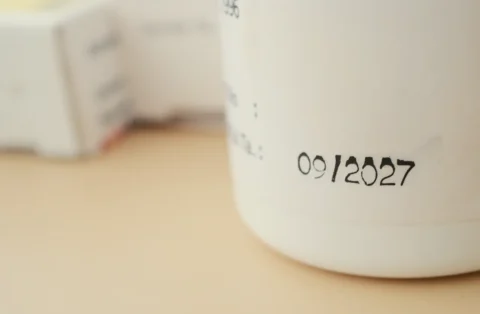What you’ll learn
We’ll explore why anger is a common emotion during recovery and how these feelings are a natural part of healing. You’ll also learn practical coping strategies to manage anger and stay grounded on your journey to sobriety.
Substance use recovery can be a stressful experience that leaves you with all sorts of emotions. Some days feel calm and steady, while others bring emotions that hit harder than expected, like anger, frustration, and even resentment. It’s okay to feel that way. These emotions are a normal part of long-term healing.
Even after months or years in recovery, life can still bring stressors that stir things up. When those emotions feel heavy, there are healthy ways to work through them, and we’re here to help you identify and use the tools that can help you keep moving forward.
Why is anger common during addiction recovery?
Substance use changes the brain’s chemistry, especially in the areas that regulate emotions. When you become dependent on a substance, repeated use can cause areas that regulate emotions to be hurt or damaged, which makes you more likely to have higher anxiety, stress, fear, and irritability.
During recovery, those systems start to heal, but it takes time, and sometimes, that process can make feelings feel unpredictable. New chemical fluctuations start to occur, and these shifts can cause you to feel higher levels of anger and frustration, even when you’re doing your best to control your emotions.
If you’ve noticed anger showing up more often lately, it doesn’t mean you’re moving backward. It usually means your body and mind are still adjusting, or that new challenges are triggering old patterns.
Recovery affects both body and mind. Fatigue, poor sleep, or even everyday stress can make it harder to manage emotions. When you’re burnt out or overwhelmed, anger can show up faster and feel more intense.
When that happens, take a step back. Breathe. Remember that these reactions are temporary and that you’ve gotten through harder moments before. This is about awareness, self-compassion, and choosing to respond differently each time.
Effects of unmanaged anger
Learning to manage anger takes time, and it’s normal for your progress to have ebbs and flows. You might feel in control one minute, then suddenly get overwhelmed by your feelings the next, and that’s okay. The important part is that you keep pushing forward in your recovery.
If feelings of anger or resentment build up over time, they can impact both your emotional and physical health. Ongoing anger has been linked to several physical effects, including:
- High blood pressure: Strong or lasting feelings of anger can spike your blood pressure. This can lead to cardiovascular problems that substance use could have already made you more at risk of developing.
- Digestive problems: You can have digestive problems and experience a weakened immune system due to high cortisol levels. Cortisol is a stress hormone. When these levels stay high for long periods of time, it can be hard on your body, the same way any chronic condition can affect your body over time.
- Trouble sleeping: Anger or tension that lingers can also cause you to have problems with sleeping, including insomnia. When you’re not able to get the rest you need, your stress levels can spike. In turn, you might feel more anxious or depressed as time goes on.
Be kind to yourself as you work through these feelings. It’s normal to struggle with anger or feel unsure about how to handle it. No one naturally knows how to manage these intense emotions, especially the kind that can come from withdrawal. That’s why anger management is such a crucial part of the recovery process. It’s specifically designed to help you navigate your feelings and process them in a healthy way.
Ways to cope with anger during addiction recovery
Learning to manage anger is an important part of recovery. You can’t always control the person or situation that triggered your anger, but you can control your reaction to feeling angry. When anger feels deep or overwhelming, try to pause and remain calm. Take some deep breaths, give yourself a moment, and focus on how you want to respond rather than reacting quickly.
Dr. Robert Stern, Chief Medical Officer at QuickMD, explains that many people in recovery often feel anger toward things that are completely outside their control. He emphasizes:
“We can only control ourselves in the present moment. We cannot control the past or the future, so regrets of the past and fear of the future are not under our control. Neither can we control another person. We are only in control of ourselves at the present moment.”
Quick responses often intensify anger and escalate the situation, while a calm, intentional, and thoughtful response can help you feel more grounded and in control.
There are a lot of strategies you can try for managing anger in recovery, and they each have their own unique benefits. If the wide variety of options feels overwhelming at first, remember that you don’t have to navigate this alone. We’re here to help you every step of the way. Let’s take a closer look at each one so that you know what to expect.
Mindfulness
Mindfulness is a practice that connects you with your own body and the world around you. It’s designed to help you focus on the present moment, so you can set aside thoughts of the past that make you feel uneasy or worried about the future. When you focus too much on what you can’t control, it can be easy to slip into negative emotions like anger. Practicing mindfulness through deep breathing exercises and grounding strategies can help center you in the present, de-escalating any anger you’re feeling and allowing you to approach your recovery with more kindness towards yourself.
Behavioral therapy
Behavioral therapy helps you connect with an objective professional who can help you feel seen, heard, and sort through all of the emotions you’re feeling during recovery, not just anger. You’ll learn to recognize when you have negative thoughts, as well as what triggers them.
Art, music, or exercise therapy
Finding ways to express yourself can be another way to help you deal with anger in recovery. Perhaps you learn to cope with your anger through painting or music. You can illustrate what you’re feeling through color on a canvas or by playing an instrument that helps express your feelings with sound better than you can with your words.
Exercise and playing sports can be another healthy outlet. You might take up jogging or running, where your feelings help you push to the next mile. Or perhaps you join a team sport where you can use your anger as competitive fuel, giving you an avenue to direct your feelings into a positive experience of supporting your teammates.
Channeling your intense emotions into something positive, whether you use your anger as inspiration for art or as physicality to win a game, is a way of taking back control over how what you’re feeling affects you in other areas of your life. When you give voice to what you’re feeling instead of keeping it inside, you’ll be able to regulate even your most difficult emotions, even when you feel triggered.
Finding healthy expressions of anger
Expressing anger isn’t inherently something negative. There are times when you should allow yourself to feel and show anger. Expressing your anger can be therapeutic, but it’s important that you find a healthy and safe way of doing it.
For example, improving your communication with others makes it easier to share why you’re upset. When you can calmly explain why you’re angry or frustrated, you’ll be able to fully show the other person why you feel a certain way, instead of the conversation getting cut short because you had an angry outburst. That way, you can get all of your feelings out at once and resolve conflicts without any feelings of resentment or shame afterwards.
Benefits of anger management during recovery
Pushing down intense feelings until they explode is something that’s common for many people. This is one reason why anger and alcohol or substance use often go hand-in-hand. You might have used substances in the past to dull these feelings of discomfort or resentment, only to become overwhelmed by them later.
When you work to resolve your anger while also pursuing recovery, you’ll be healing two wounds at once. Getting sober and engaging in anger management will improve your physical, mental, and emotional well-being, paving the way for future success in both your recovery and your life as a whole.
Improves physical health
Being in recovery plays a big part in helping your body physically heal from substance use, and anger management can help even more. Learning to control your anger can improve your blood pressure and lower your cortisol levels. When you’re able to lower your stress levels, you can get the rest you need to give you more energy to go about your day and get more enjoyment out of life.
Enhances mental health
In recovery, you’ll often hear how important it is to stay positive, but we know that can be hard when you’re also dealing with unresolved anger. Anger management will teach you how to respond to your emotions in more productive ways, making it easier to lean into the good parts of recovery. If you feel like you’re getting overwhelmed with negative thoughts, the coping mechanisms you learn in anger management can help you ground yourself, regain control, and stop feeling like you’re at the mercy of your emotions.
Anger management can also make it easier to manage your stress levels and reduce feelings of anxiety. This can help enormously with your daily quality of life. You’ll be able to go through your days without being afraid of triggers because you’ll have the tools you need to handle them.
Decreases the risk of relapse
Unmanaged anger can quickly put you on a course to relapse. When you feel out of control, it’s easy to turn back to substances for help. If this happens, don’t feel discouraged or like you failed at recovery. Relapse is a normal part of getting sober. Feeling angry in the moment doesn’t mean you can’t reach your goals, and you can pick up right where you left off. When you can better regulate your emotions and understand where they’re coming from, you’ll be better equipped to deal with them in a healthy way and protect your sobriety.
Boosts relationships
The anger you feel, especially when you’re going through withdrawal, can make recovery difficult for you, as well as your loved ones. They might choose not to engage with you out of fear of angering you, especially if they don’t know how to help you deal with your intense emotions. This doesn’t mean that you’re unable to ever maintain healthy relationships or that you’re not valued by the people you love. You just have to remain dedicated to improving yourself and take it one day at a time. By taking responsibility for how you react and express yourself, you can start rebuilding your relationships with the people you love.
Check in with your QuickMD provider
Feeling angry or emotionally overwhelmed in recovery is completely normal, but it doesn’t have to stand in the way of your progress. Your QuickMD care team is here to help you navigate these moments and find strategies that work for you, whether through therapy, support groups, or simply connecting with your provider.
Frequently asked questions
Does sobriety make you angry?
You may still notice feelings of anger or frustration as your brain chemistry continues to rebalance in recovery. This is a normal part of the healing process, and for many people, these emotions ease with time and continued care.
How long does it take for brain chemistry to return to normal after alcohol?
You might notice some improvements after just a few weeks of stopping alcohol use, but the most important brain chemistry changes can take months or years. This process is also different for everyone, depending on how long you’ve been dealing with substance use.
Is anger a withdrawal symptom?
During withdrawal, it’s possible to become agitated because your body and mind are in a high state of stress. This can lead to anger, but not everyone experiences it to the same degree. That’s why it’s important to never compare your sobriety journey against someone else’s.
Is anger a stage of healing?
Anger can be a stage of healing. This can be especially true if you’re dealing with trauma that you haven’t confronted until now. Healthy levels of anger allow you to better process what you’ve been through so you can get closure and move on.
Do people in recovery have mood swings?
Don’t be afraid if you feel like your mood feels a bit out of control. People in recovery often have mood swings as a normal part of the process. These feelings will level out once your brain chemistry attunes to life in recovery..




